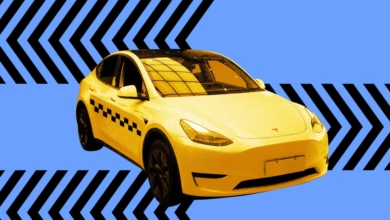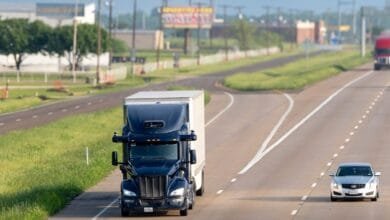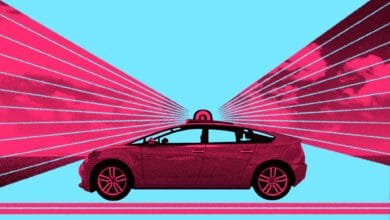Aurora Co-Founder Sterling Anderson Exits Self-Driving Truck Startup

▼ Summary
– Sterling Anderson, Aurora’s co-founder and chief product officer, is resigning shortly after the company launched its commercial self-driving truck service in Texas.
– His resignation, effective June 1 (and leaving the board August 31), was noted in a regulatory filing, with Aurora stating it was not due to any disagreements.
– Anderson is leaving for a senior leadership role at an iconic global company, as revealed during Aurora’s earnings call.
– Aurora, co-founded in 2017 by Anderson and other autonomous vehicle pioneers, gained prominence through high-profile partnerships and a $10 billion deal with Uber in 2020.
– Despite its SPAC merger and focus on self-driving trucks, Aurora remains in development and faces challenges as a publicly traded company.
Sterling Anderson, one of the key architects behind Aurora’s autonomous vehicle technology, has announced his departure from the self-driving truck startup. The move comes just days after the company celebrated the commercial launch of its driverless freight service in Texas, marking a significant milestone for the industry.
Anderson served as Aurora’s chief product officer and co-founder since its inception in 2017. His resignation, disclosed in a recent regulatory filing alongside first-quarter earnings, will take effect June 1, with his board exit following on August 31. Aurora emphasized that his departure was not due to any internal disputes, praising his foundational role in shaping the company’s vision and technology.
During the earnings call, Anderson revealed he was stepping away to pursue a senior leadership position at a major global corporation, though specifics remain undisclosed. “This was an incredibly tough decision,” he admitted. “But Aurora has reached a pivotal moment—its product strategy is locked in, the tech is operational, and the team is primed for scaling. That confidence made me realize now is the right time.”
Before co-founding Aurora, Anderson led Tesla’s Autopilot program, cementing his reputation as a leader in autonomous systems. Alongside CEO Chris Urmson (formerly of Google’s self-driving project) and Drew Bagnell (ex-Uber autonomy lead), he helped position Aurora as a frontrunner in the competitive AV space. The startup quickly attracted heavyweight backers, including Amazon, Sequoia Capital, and T. Rowe Price, and later bolstered its standing by acquiring Uber’s self-driving unit in a landmark 2020 deal.
That acquisition, which valued Aurora at $10 billion, saw Uber exchange its equity in its ATG division for a 26% stake in the combined entity. The company later went public in 2021 via a SPAC merger, though it has faced challenges as a publicly traded firm still working toward sustainable revenue. Aurora has since narrowed its focus to autonomous trucking, deferring robotaxi ambitions to prioritize commercial freight solutions.
The timing of Anderson’s exit raises questions, given Aurora’s recent Texas launch—a critical step toward proving its technology’s viability. Yet, with its leadership team and strategic direction firmly established, the company appears poised to continue its push into the $700 billion freight market without its co-founder at the helm.
(Source: TechCrunch)




